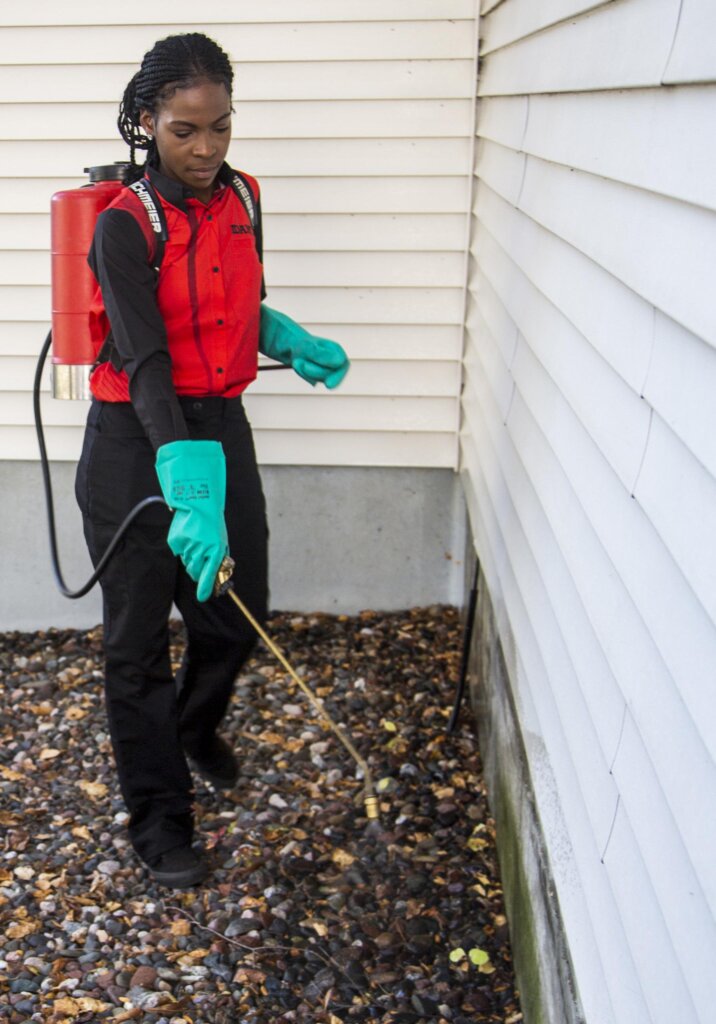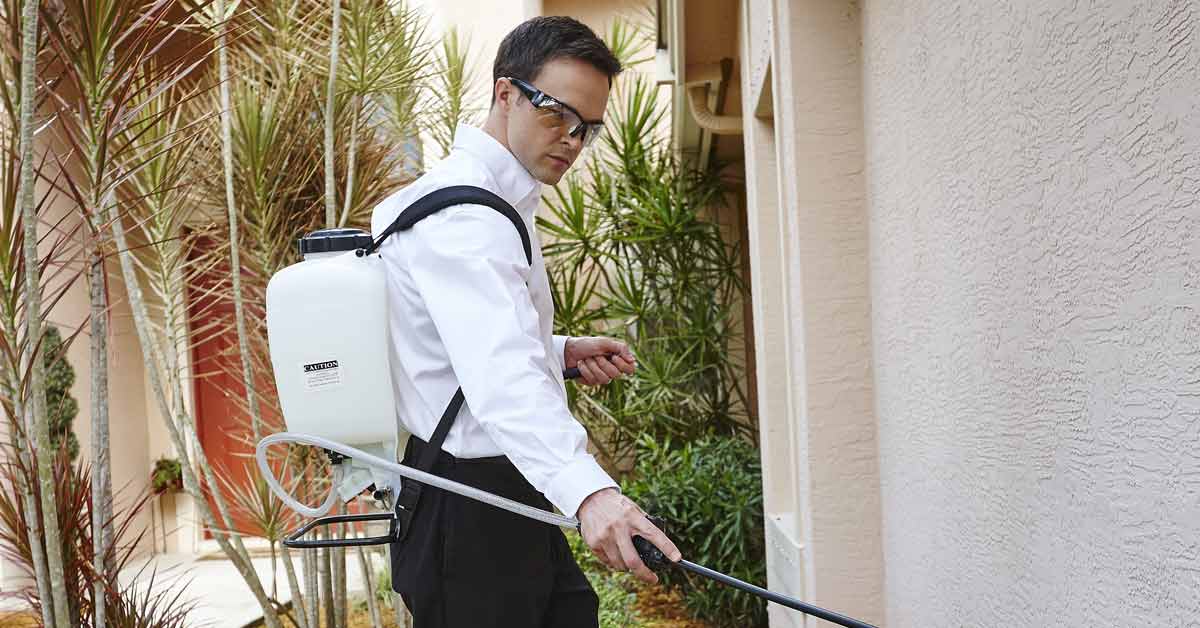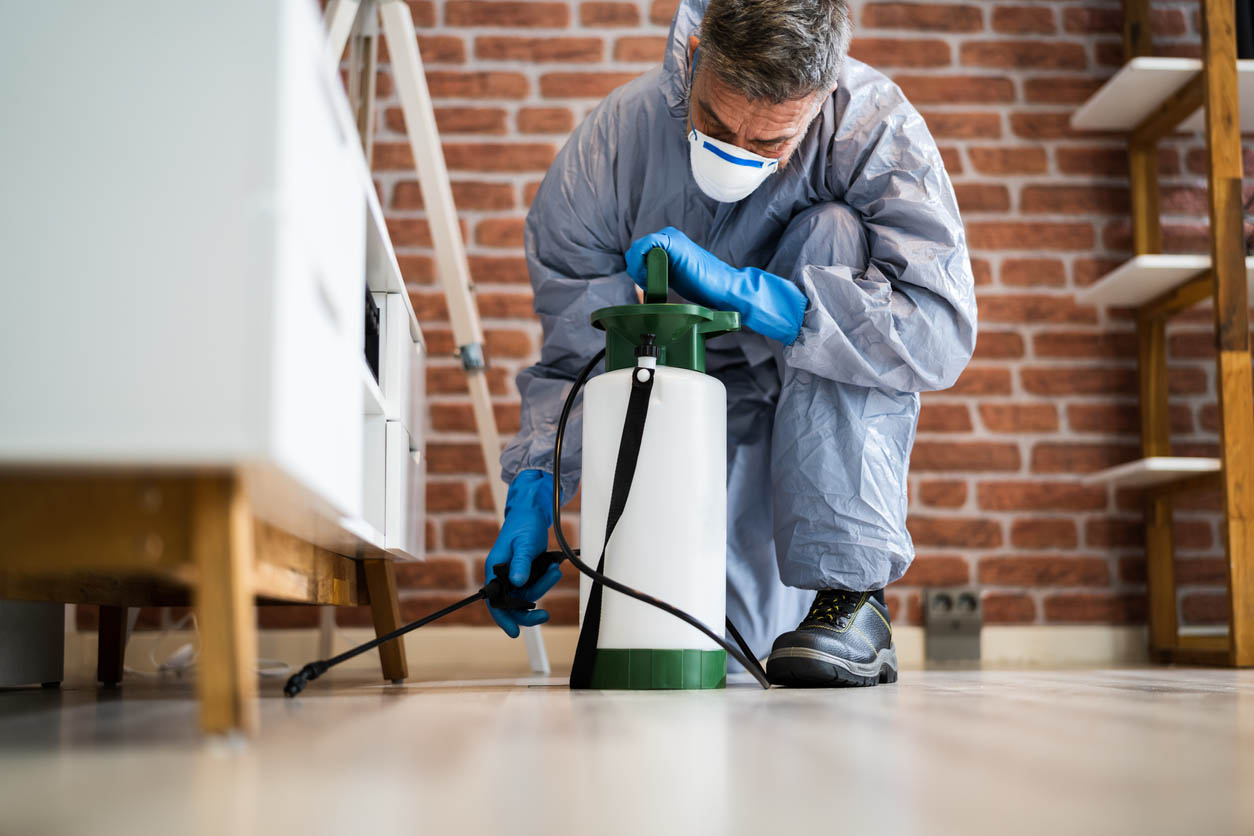Uncovering the Various Kinds Of Bug Control Techniques and Their Applications
Parasite control is a critical element of keeping a healthy and secure atmosphere, whether it be in residential, commercial, or agricultural setups. From chemical approaches that target certain pests to organic approaches that harness natural killers, the world of insect control is vast and diverse.
Chemical Bug Control Methods
Chemical pest control techniques are widely utilized in agriculture and pest management to efficiently eliminate or manage pest invasions. These techniques include the use of chemical compounds, such as chemicals, herbicides, and insecticides, to minimize or get rid of pest populaces that posture a threat to plants, livestock, or human health.
While chemical pest control strategies can be very reliable in handling insect populations, they additionally raise issues about possible environmental and health and wellness risks. Inappropriate usage or overuse of chemical pesticides can lead to contamination of water, air, and soil, damaging non-target organisms and causing long-term ecological damages. Furthermore, repeated direct exposure to chemical deposits may position wellness dangers to farmworkers, consumers, and wildlife. Therefore, it is important to adhere to safety standards, utilize integrated pest management strategies, and think about alternative techniques to reduce the negative effects of chemical pest control strategies.
Organic Bug Control Approaches
 Biological parasite control techniques use living microorganisms to minimize and manage insect populations in a environmentally friendly and sustainable fashion. This strategy entails presenting natural predators, parasites, or pathogens to regulate parasites without the requirement for synthetic chemicals. One common technique is the release of ladybugs to deal with aphids in gardens, as ladybugs are all-natural killers of these devastating pests. Another instance is using Bacillus thuringiensis (Bt), a bacterium that generates contaminants dangerous to specific insect larvae, to control caterpillars and insects.
Biological parasite control techniques use living microorganisms to minimize and manage insect populations in a environmentally friendly and sustainable fashion. This strategy entails presenting natural predators, parasites, or pathogens to regulate parasites without the requirement for synthetic chemicals. One common technique is the release of ladybugs to deal with aphids in gardens, as ladybugs are all-natural killers of these devastating pests. Another instance is using Bacillus thuringiensis (Bt), a bacterium that generates contaminants dangerous to specific insect larvae, to control caterpillars and insects. 
Biological parasite control techniques provide several benefits over chemical approaches. On the whole, biological bug control techniques present a efficient and natural choice to typical chemical treatments, promoting a well balanced ecological community and much healthier settings.
Physical Bug Control Approaches
Using physical methods to regulate bugs involves using mechanical or non-chemical means to reduce and manage parasite infestations effectively. These strategies depend on physical barriers, catches, and other strategies to prevent and eliminate parasites without making use of hazardous chemicals. One usual physical parasite control technique is the installation of fencings, displays, or internet to block bugs from entering particular locations. This method is specifically effective in maintaining out pests and tiny pets from yards or buildings.
Another physical method is the usage of catches, such as snap catches for rats or scent visite site catches for pests. These catches aim to capture insects without presenting any kind of threat to human beings or the environment. Furthermore, physical control approaches can consist of strategies like handpicking bugs off plants, making use of vacuum gadgets to eliminate bugs, or utilizing warm treatments to eliminate bed bugs and other pests in infested locations.
Integrated Parasite Monitoring Approaches
Applying an all natural strategy to pest monitoring, Integrated Bug Administration (IPM) techniques intend to incorporate numerous efficient techniques to protect against and manage insect invasions while reducing ecological effect and making sure sustainable bug control methods. IPM involves the assimilation of several control methods such as organic control, social techniques, mechanical control, and the cautious use chemicals.

Moreover, IPM emphasizes the importance of surveillance and assessing pest populations to figure out one of the most suitable control approaches. By carrying out IPM approaches, pest control efforts end up being extra targeted and reliable, reducing the risks connected with extreme chemical usage and advertising long-term pest administration remedies.
All-natural and Organic Parasite Control Options

One prominent natural insect control approach is neem oil, derived from the seeds of the neem tree, which acts as a repellent and interrupts the development and advancement of insects. Diatomaceous earth, an all-natural silica-based powder, is another efficient natural insect control option that works by drying check out here out insects upon call. By incorporating natural and natural bug control alternatives into insect monitoring techniques, people can efficiently regulate pests while lessening injury to the setting and promoting sustainable methods.
Verdict
In conclusion, different bug control strategies such as chemical, biological, physical, integrated pest monitoring, and natural options are offered for successfully taking care of parasite infestations. Each approach has its very own benefits and applications depending on the type of insect and the atmosphere. By comprehending the various kinds of bug control strategies and their applications, individuals can make educated choices on one of the most proper method to control insects and shield their home.
Chemical parasite control methods are widely made use of in agriculture and pest management to efficiently get rid of or manage pest invasions - Orem Pest Control. Natural insect control methods involve making use of organic control representatives, such as killers or parasites, to handle insect populations. By incorporating natural and organic insect control options right into parasite administration methods, individuals can effectively regulate parasites while lessening damage to the atmosphere and advertising sustainable methods
In conclusion, various pest control methods such as chemical, organic, physical, integrated pest management, and all-natural alternatives are available for effectively taking care of pest infestations. By comprehending the various kinds of parasite control techniques and their applications, individuals can make informed choices on the most suitable strategy to regulate bugs and protect their property.